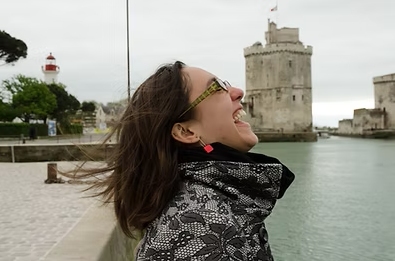Jilda CACCAVO
CGS Theme: Marine Biogeochemistry, ecosystems & resources
Jilda is a researcher in Marine Biology. After training as a biologist and specialising in neurobiology at Rockefeller University (USA), she went on to study Aquatic Ecology at Queen Mary University of London. Her PhD thesis was on ‘Population structure, connectivity and ecological dynamics of the Antarctic silverfish, Pleuragramma antarctica’ obtained in 2018 at the University of Padua (Italy). She did her first potsdoc at the Alfred-Wegener-Institut Helmholtz-Zentrum für Polar- und Meeresforschung in Bremerhaven (Germany) from 2019 to 2021 and then moved to IPSL in 2022. She hopes that her efforts could have positive environmental impacts.
Her work at the IPSL Climate Graduate School
I was awarded a postdoctoral fellowship to lead ClimGenAT, an interdisciplinary study introducing the field of climate genomics to bring together genomics and environmental modeling to understand the impacts of climate change on wild populations, with a particular focus on Antarctic toothfish (Dissostichus mawsoni). In addition to being the largest fish predator in the Southern Ocean, the Antarctic toothfish, marketed as Chilean Sea Bass, represents the most lucrative Antarctic fishery. I am using whole-genome resequencing of toothfish samples representing circumpolar populations to search for signs of adaptive stress in the genome correlated with exposure to environmental change. I will integrate these genomic data into species distribution models to inform our understanding of Antarctic toothfish population structure and connectivity both in the present day, as well as projected into the future, using different climate change scenarios.
This work informs fisheries management decisions by CCAMLR, and supports marine spatial planning initiatives throughout the Southern Ocean.
Finally, the creation of the new field of climate genomics through ClimGenAT opens the floodgates of research opportunities to apply similar methods to address questions related to the impacts of climate change in myriad other wild populations, both marine and terrestrial, in the Southern Ocean, and throughout the globe.

